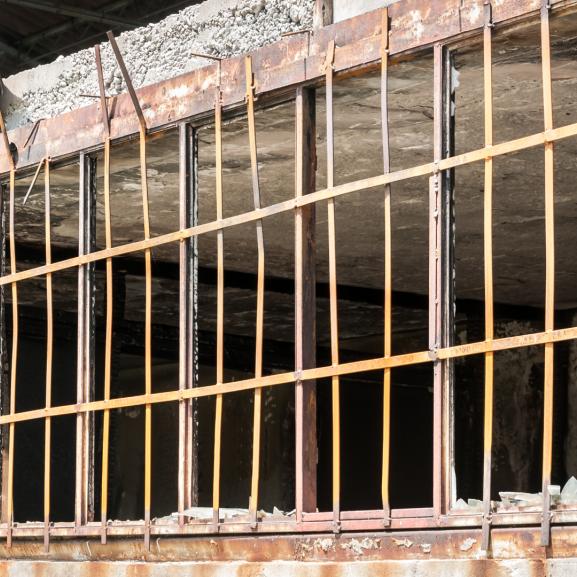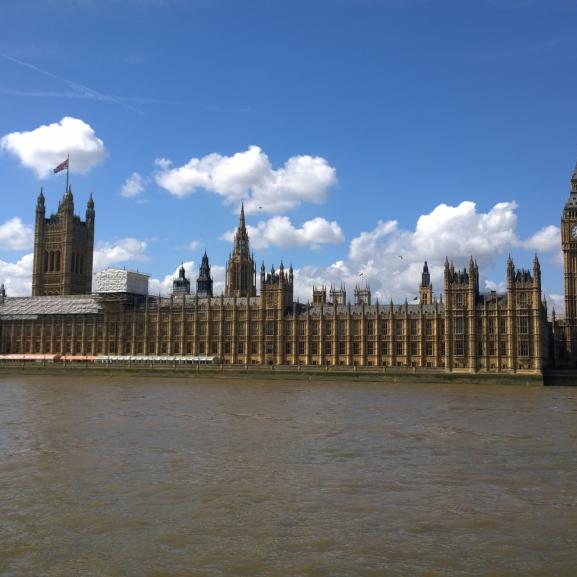Sri Lanka claims "zero tolerance of torture" to Committee against Torture
"Sri Lanka is with you 110% in its position...no tolerance [of torture], no abridging of standards, no exception to the rule..." This is what the Sri Lankan government representative told the UN Committee Against Torture this week in Geneva – the body which monitors compliance with the Convention Against Torture - when it met to scrutinise Sri Lanka's periodic reports...
The government representative gave a largely polished performance proffering assurances and rebuttals, but the Committee pursued the delegation with tough questions throughout the two-day session.
Just three days beforehand, Freedom from Torture's researcher had presented shocking evidence of ongoing torture by both military and police in the country directly to the Committee - we've since published a report setting out this evidence documented by our expert clinicians using forensic methods in medico-legal reports.
So why the contrast between assurance and evidence?
The Committee's Rapporteur on Sri Lanka, Felice Gaer, stated in no uncertain terms that they had not received sufficient answers from the Sri Lankan delegation to the "extensive allegations of torture and ill-treatment....[from] enforced and involuntary disappearance to routine torture and ill-treatment by the police; [which] range from sexual violence in the conflict zone to harassment and intimidation of human rights lawyers and journalists; ...from secret detention centres to a failure to investigate all deaths that have occurred routinely in the prison system". Co-Rapporteur on Sri Lanka, Alessio Bruni added: 'We have heard a lot of information (from the Government) about rules and regulations, not so much about what happens in the country...the reality seems to be different, the amount of allegations coming from the most reliable sources.. UN sources...NGO sources...one cannot say that there is a real zero tolerance policy in Sri Lanka....You said you are 110% with us. Are you 110% with your own civil society?"
Perhaps in the face of this questioning, the Sri Lankan representative later revised down the scale of the government's efforts "to make the Convention effective....to bring [torture] to a minimum, ideally to eradicate it entirely." This is hardly consistent with the absolute nature of the prohibition on torture; never means never – not 'minimise'.
Questions, questions
While commenting on the impressive nature of Sri Lanka's (still yet to be published) "Human Rights Action Plan" which Felice Gaer noted civil society would be very pleased with "should it be implemented", she found crucially that there was not a single reference made "to conducting investigations [or] prosecutions of those held to be responsible for torture; this is the most central obligation on states (as well as criminalising torture) in the Convention".
This lack of investigation into torture is a huge concern for Freedom from Torture and the other human rights organisations presenting evidence to the Committee about ongoing abuses in Sri Lanka; until we know that thorough and independent investigations have been conducted into what has been going on, all we have for now is the government's word. Given the shocking cases of torture we have documented – survivors arriving at our door in the UK with the resulting mental and physical scars still fresh – the government's word on torture is not something we can hold in any regard.
This also augurs badly for the government's response to the Lessons Learnt and Reconciliation Commission (LLRC) created to fend off complaints from within Sri Lanka and from the international community about a massive failure of accountability for the atrocities committed on both sides during the final stages of the civil war. The LLRC is itself deeply flawed and expected to deliver a whitewash when it finally reports any day now. At this point, the UK and other states which have withheld further pressure on the Sri Lankan regime pending the report will have no choice but to act.
We are still left with as many questions, if not more than before The Committee had given the Sri Lankan government detailed written questions and requests well in advance of this session, including to provide a list of detainees in government custody and those held under the Prevention of Terrorism Act; to detail protections for lawyers facing harassment in their work; to provide more information on Sri Lanka's National Human Rights Commission including its visits and complaints received. This list goes on for pages. Felice Gaer told the delegation "we are still left with as many questions, if not more than before". Not least on sexual violence – apparently not a single complaint has been received in Sri Lanka, according to the government.
It seems that the Sri Lankan government is more than a little reluctant to talk numbers. In dismissing the UN Panel of Experts Report which was delivered to the UN Secretary General in March 2011 as "unchecked, uncorroborated, unverified", the delegation failed to acknowledge that the numbers of individuals held in detention as detailed in the report were based on Sri Lankan government sources. The irony was not lost on the Committee.
Ex-combatants "exploiting" the Convention
The government representative's smooth delivery was somewhat interrupted at the end of the session when he spoke out vehemently about Western governments being manipulated into granting asylum to 'terrorists' who are "for economic convenience traversing a story of torture". These comments seemed to be an attempt to undermine and reduce the impact of the strong evidence of ongoing torture presented to the Committee, as well as the Committee's dismissal of the government's assurance of 'zero tolerance on torture'.
The representative addressed the Committee:
"I would honestly implore you that when it comes to matters dealing with complaints of torture by those who are ex-combatants....do bear in mind that for an ex-combatant who seeks asylum in greener pastures, it is always a very convenient vehicle...to say every single man has been tortured in terms of the Convention Against Torture, now one must lead with a wide berth for that kind of thing...the Convention should never be permitted to be exploited in the hands of terrorists."
It is clear as day under international law that torture is wrong in all circumstances, whoever the victim – be they combatant or civilian, man or woman. Allegations must be investigated; torturers must be held to account. Let us hope that governments around the world do not let Sri Lanka off the hook if the government fails to achieve the justice it has promised through its own means.






